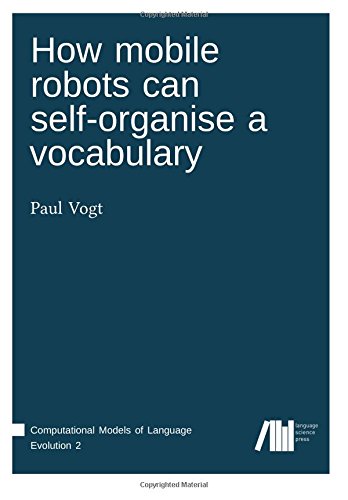
How Mobile Robots Can Self-organise a Vocabulary
by Paul Vogt
Publisher: Language Science Press 2015
ISBN/ASIN: 3946234011
ISBN-13: 9783946234012
Number of pages: 286
Description:
This book presents a series of experiments in which two robots try to solve the symbol grounding problem. The experiments are based on the language game paradigm, and involve real mobile robots that are able to develop a grounded lexicon about the objects that they can detect in their world.
Download or read it online for free here:
Download link
(2.6MB, PDF)
Similar books
 Natural Language Processing for the Working Programmer
Natural Language Processing for the Working Programmerby Daniël de Kok, Harm Brouwer
We will go into many of the techniques that so-called computational linguists use to analyze the structure of human language, and transform it into a form that computers work with. We chose Haskell as the main programming language for this book.
(16447 views)
 Computational Linguistics
Computational Linguisticsby Igor Boshakov, Alexander Gelbukh
The book focuses on the basic set of ideas and facts from the fundamental science necessary for the creation of intelligent language processing tools, without going deeply into the details of specific algorithms or toy systems.
(22361 views)
 Language, Proof and Logic
Language, Proof and Logicby Jon Barwise, John Etchemendy - Center for the Study of Language
The book covers the boolean connectives, formal proof techniques, quantifiers, basic set theory, induction, proofs of soundness and completeness for propositional and predicate logic, and an accessible sketch of Godel's first incompleteness theorem.
(20518 views)
 Prolog and Natural-Language Analysis
Prolog and Natural-Language Analysisby F. C. N. Pereira, S. M. Shieber - Center for the Study of Language
A concise introduction to logic programming and the logic-programming language Prolog both as vehicles for understanding elementary computational linguistics and as tools for implementing the basic components of natural-language-processing systems.
(20973 views)